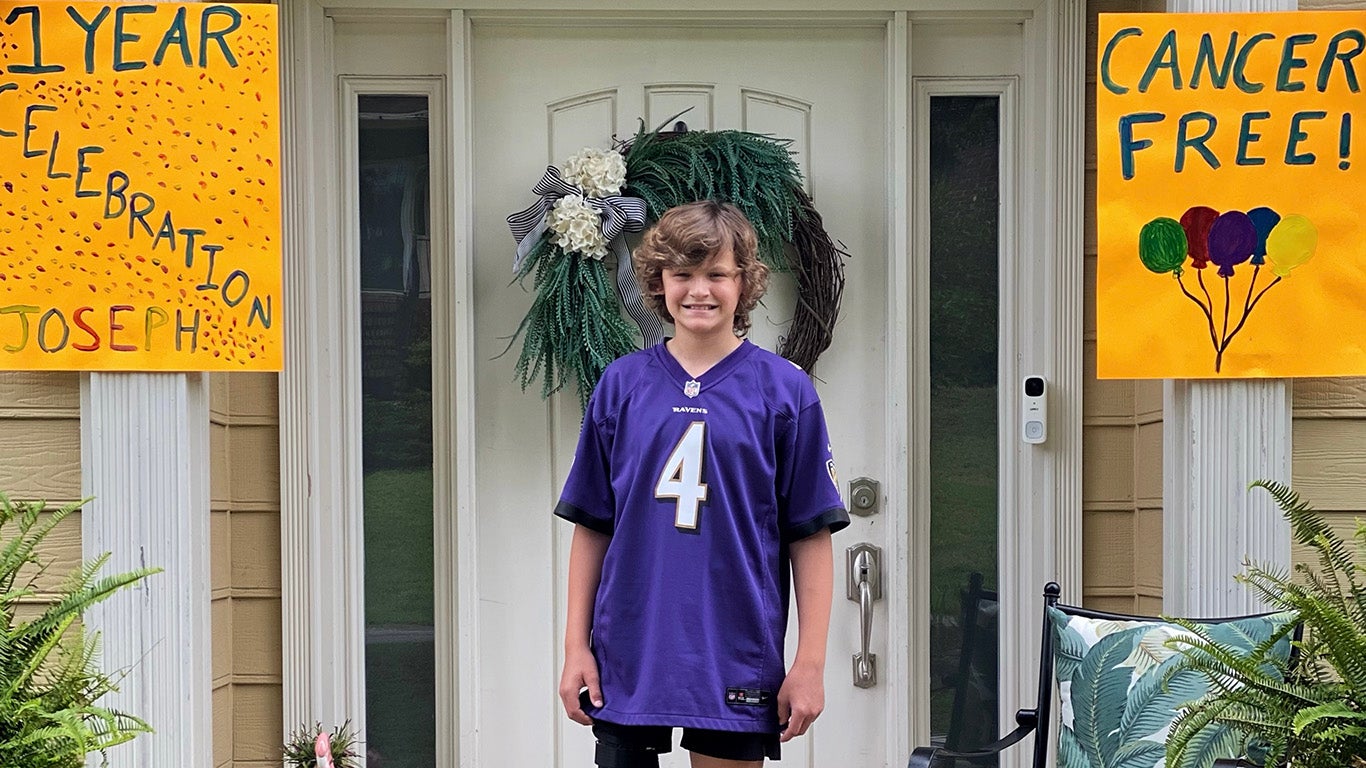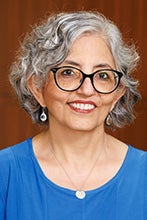Osteosarcoma
On October 7, 2023, ten-year-old Joseph Coleman was playing football in a neighbor's yard. He fell and came hobbling home, crying in pain. The next day, he woke up in pain, his leg swollen above the knee.
“My wife and I decided that he needed to go to the local ER to make sure he was OK,” said Joe, Joseph’s father. “They diagnosed him, not with a fracture or a sprain, but with a lesion on his femur, the only bone in the thigh, that runs from the thigh to the knee and sent us to Children’s of Alabama.”
The next few weeks were a whirlwind for the Colemans. Children’s ER referred them to an orthopedic surgeon who specializes in musculoskeletal oncology. An MRI was performed along with a needle biopsy to determine the diagnosis. Joseph was diagnosed with osteosarcoma of his right distal. Osteosarcoma is a cancerous bone tumor. It most often occurs in the arms and legs, but can also affect other bones. Joseph’s tumor was localized, but he would need chemotherapy followed by surgery and more chemotherapy afterward.
A couple of weeks later, Joseph began chemotherapy under the care of Jamie Aye, MD, pediatric hematologist/oncologist. He received six cycles of chemotherapy. The majority of his chemotherapy was given inpatient in the hospital’s hematology and oncology unit. Additionally, he was hospitalized three times due to fever.
In January 2024, Joseph had a rotationplasty to remove the tumor. The procedure is used to treat malignant bone tumors, particularly in children. During surgery, part of the upper leg is removed, and the lower leg is rotated 180 degrees and reattached to the thighbone, effectively using the ankle as a functional knee joint. This technique aims to preserve mobility and improve the patient's quality of life compared to traditional amputation methods.
“Dr. Aye is a very sympathetic and very able oncologist,” said Joe. “She listened to us and answered all of our questions. Dawn Camp-Sorrell, our nurse practitioner, is a fun, quick-witted, extremely helpful partner throughout the entire journey. She was our go-to for everything from home, answering our questions and helping us to navigate Joseph's nausea, fevers, and medications.” Due to Joseph's aggressive chemotherapy schedule and compromised immunity, he was not able to continue his normal activities. His school set up homebound education for him on his "good" weeks. He was non-weight bearing on his leg in the beginning, then non-weight bearing on his leg for 12 weeks after surgery.
“On the good weeks, we still avoided indoor large crowds due to his immune system, and that included church and holiday gatherings,” Joe added.
After eight months, Joseph was in remission from cancer and had to learn and train his muscles to walk with a prosthesis through physical therapy. A year later, Joe said his son is “doing great.” He has had to deal with a couple of fractures due to osteopenia (a common weakening of the bones from chemotherapy) in the leg from the period of immobilization. He is working with Children's to strengthen his bones with infusions administered by endocrinologists at Children’s.
Joseph, now 12, plays in the neighborhood, swims in the pool, has attended school full time, and they are back in church. He hopes to play sports again in the near future.
“8 Quarterback is an amazing hospital unit,” adds Joe. “Those nurses and nurse practitioners cared deeply for our son and became his caregivers and friends. We share our lives with them. They explained things, they consoled us, and they encouraged us. Children’s was an unexpected jewel for us. The hospital integrates knowledgeable doctors and staff with compassion. They are the best.”



















